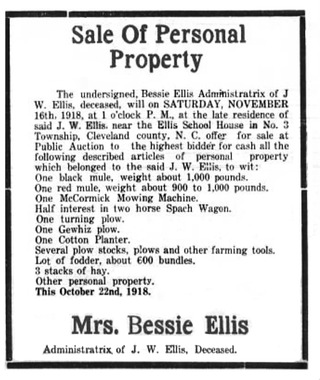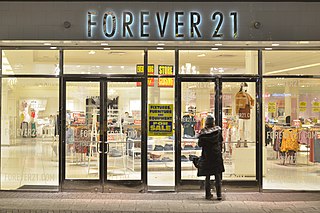Related Research Articles

An auction is usually a process of buying and selling goods or services by offering them up for bids, taking bids, and then selling the item to the highest bidder or buying the item from the lowest bidder. Some exceptions to this definition exist and are described in the section about different types. The branch of economic theory dealing with auction types and participants' behavior in auctions is called auction theory.
This aims to be a complete list of the articles on real estate.
A real estate agent, referred to often as a real estate broker, is a person who represents sellers or buyers of real estate or real property. While a broker may work independently, an agent usually works under a licensed broker to represent clients. Brokers and agents are licensed by the state to negotiate sales agreements and manage the documentation required for closing real estate transactions. Buyers and sellers are generally advised to consult a licensed real estate professional for a written definition of an individual state's laws of agency.

Liquidation is the process in accounting by which a company is brought to an end in Canada, United Kingdom, United States, Ireland, Australia, New Zealand, Italy, and many other countries. The assets and property of the company are redistributed. Liquidation is also sometimes referred to as winding-up or dissolution, although dissolution technically refers to the last stage of liquidation. The process of liquidation also arises when customs, an authority or agency in a country responsible for collecting and safeguarding customs duties, determines the final computation or ascertainment of the duties or drawback accruing on an entry.

An estate sale or estate liquidation is a sale or auction to dispose of a substantial portion of the materials owned by a person who is recently deceased or who must dispose of their personal property to facilitate a move.
Market value or OMV is the price at which an asset would trade in a competitive auction setting. Market value is often used interchangeably with open market value, fair value or fair market value, although these terms have distinct definitions in different standards, and differ in some circumstances.
Real estate appraisal, property valuation or land valuation is the process of developing an opinion of value for real property. Real estate transactions often require appraisals because they occur infrequently and every property is unique, unlike corporate stocks, which are traded daily and are identical. The location also plays a key role in valuation. However, since property cannot change location, it is often the upgrades or improvements to the home that can change its value. Appraisal reports form the basis for mortgage loans, settling estates and divorces, taxation, and so on. Sometimes an appraisal report is used to establish a sale price for a property.
Business valuation is a process and a set of procedures used to estimate the economic value of an owner's interest in a business. Here various valuation techniques are used by financial market participants to determine the price they are willing to pay or receive to effect a sale of the business. In addition to estimating the selling price of a business, the same valuation tools are often used by business appraisers to resolve disputes related to estate and gift taxation, divorce litigation, allocate business purchase price among business assets, establish a formula for estimating the value of partners' ownership interest for buy-sell agreements, and many other business and legal purposes such as in shareholders deadlock, divorce litigation and estate contest.
A partition is a term used in the law of real property to describe an act, by a court order or otherwise, to divide up a concurrent estate into separate portions representing the proportionate interests of the owners of property. It is sometimes described as a forced sale. Under the common law, any owner of property who owns an undivided concurrent interest in land can seek such a division. In some cases, the parties agree to a specific division of the land; if they are unable to do so, the court will determine an appropriate division. A sole owner, or several owners, of a piece of land may partition their land by entering a deed poll.
Flipping is a term used to describe purchasing a revenue-generating asset and quickly reselling it for profit.

A closeout or clearance sale is a discount sale of inventory either by retail or wholesale. It may be that a product is not selling well, or that the retailer is closing because of relocation, a fire, over-ordering, or especially because of bankruptcy. In the latter case, it is usually known as a going-out-of-business sale or liquidation sale, and is part of the process of liquidation. A hail sale is a closeout at a car dealership after hail damage.

Real estate investing involves the purchase, management and sale or rental of real estate for profit. Someone who actively or passively invests in real estate is called a real estate entrepreneur or a real estate investor. Some investors actively develop, improve or renovate properties to make more money from them.
Farmland development rights in Suffolk County, New York began in 1975 in Suffolk County as the state of New York began a program to purchase development rights for farmland to insure they remained as farms and open space rather than being developed for housing.
Deposit Insurance Agency (DIA) is a Russian state corporation established in January 2004 to manage operation of the deposit insurance system in the Russian Federation. DIA pays insurance compensations to depositors of failed banks. DIA also exercises bankruptcy administrator functions of insolvent banks, non–governmental pension funds and insurance companies, it is responsible for resolution of banks and managing the system of guaranteeing the rights of insured persons in the mandatory pension insurance system.

John Anthony Palumbo is an American author, businessman and professional speaker who writes and lectures internationally on consumer behavior, sales psychology, and personal development. He is based in Jacksonville, Florida.
Liquidation value is the likely price of an asset when it is allowed insufficient time to sell on the open market, thereby reducing its exposure to potential buyers. Liquidation value is typically lower than fair market value. Unlike cash or securities, certain illiquid assets, like real estate, often require a period of several months in order to obtain their fair market value in a sale, and will generally sell for a significantly lower price if a sale is forced to occur in a shorter time period. The liquidation value may be either the result of a forced liquidation or an orderly liquidation. Either value assumes that the sale is consummated by a seller who is compelled to sell and assumes an exposure period which is less than market normal.

Jeffrey Jonathon Hyland was an American real estate businessman, president of Hilton and Hyland, a real estate firm in Beverly Hills, California, and author. He had personally handled several billion dollars in real estate sales.

Financial independence is the status of having enough income or wealth sufficient to pay one's living expenses for the rest of one's life without having to be employed or dependent on others. Income earned without having to work a job is commonly referred to as passive income. Others define financial independence differently according to their own goals.
Cash and Cari is a television show starring estate sale expert Cari Cucksey produced by Cineflix. The show airs on W Network in Canada and HGTV in the U.S.A. Cari searches through homes, looking for items to sell and refurbishing as she prepares the home for a huge estate sale. Cari searches for antiques, collectible, and one-of-a-kind items. Once Cari and her team of experts price out and set up for the sale, they open to the public hoping to sell anything and everything they can.

A government auction or a public auction is an auction held on behalf of a government in which the property to be auctioned is either property owned by the government or property which is sold under the authority of a court of law or a government agency with similar authority. In the case of government procurement, goods and services are bought using a reverse auction.
References
- ↑ "What is An Estate Liquidator?". Estate Sales. Present EstateSales.org. Retrieved 4 September 2019.
- ↑ O'Brien, Elizabeth. "10 things estate sales won't tell you". marketwatch. MarketWatch, Inc. Retrieved 4 September 2019.
- ↑ Jordan, Wendy A. (24 March 2016). "When mom and dad are gone, how best to get rid of a lifetime of possessions". The Washington Post. Retrieved 4 September 2019.
- ↑ Gray, Victoria (2017-08-15). Estate Sales Made Easy: A Practical Guide to Success from Start to Finish. Hay House, Inc. ISBN 978-1-4019-5303-4.
- ↑ Schulze, Eike; Stein, Annette; Tietgen, Andreas (2019-05-01). Haushaltsauflösung leicht gemacht: Richtig entrümpeln und clever verkaufen (in German). Akademische Arbeitsgemeinschaft Verlagsgesellschaft. ISBN 978-3-96533-017-7.
- ↑ "Haushaltsauflösung | Zuverlässig & professionell Deutschlandweit". RümpelExperten Entrümpelung (in German). Retrieved 2021-04-05.
- ↑ Codina, Martin (2013-10-23). Liquidating an Estate: How to Sell a Lifetime of Stuff, Make Some Cash, and Live to Tell About It. Krause Publications. ISBN 978-1-4402-3665-5.